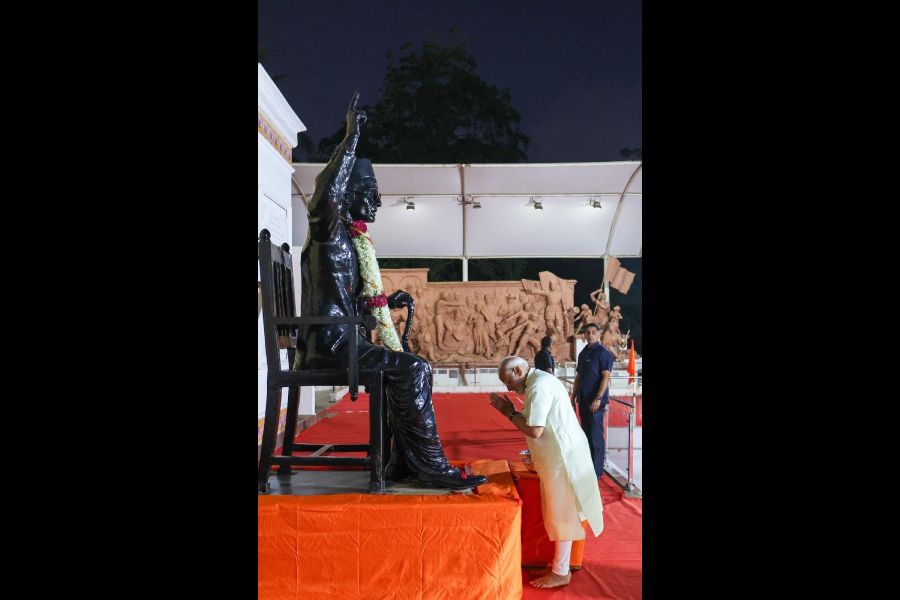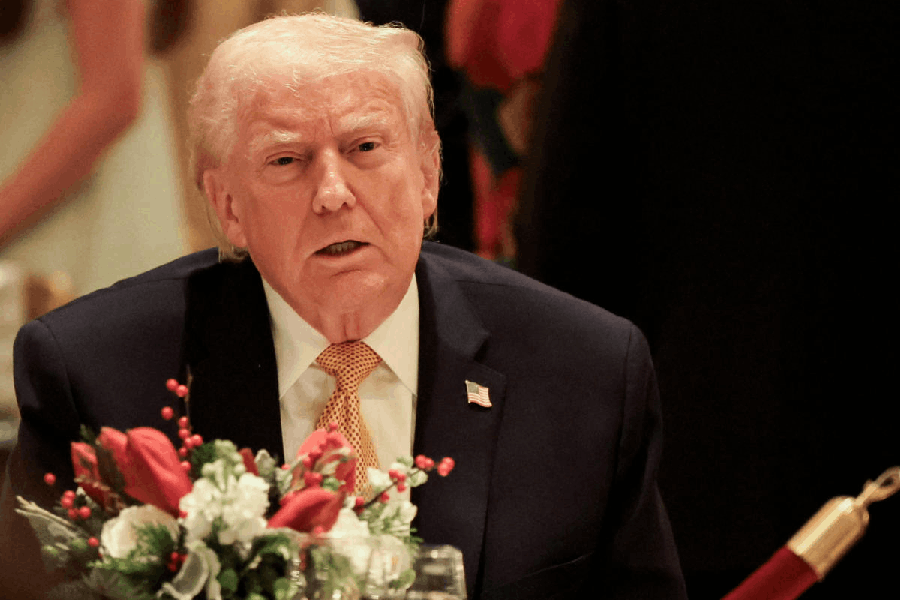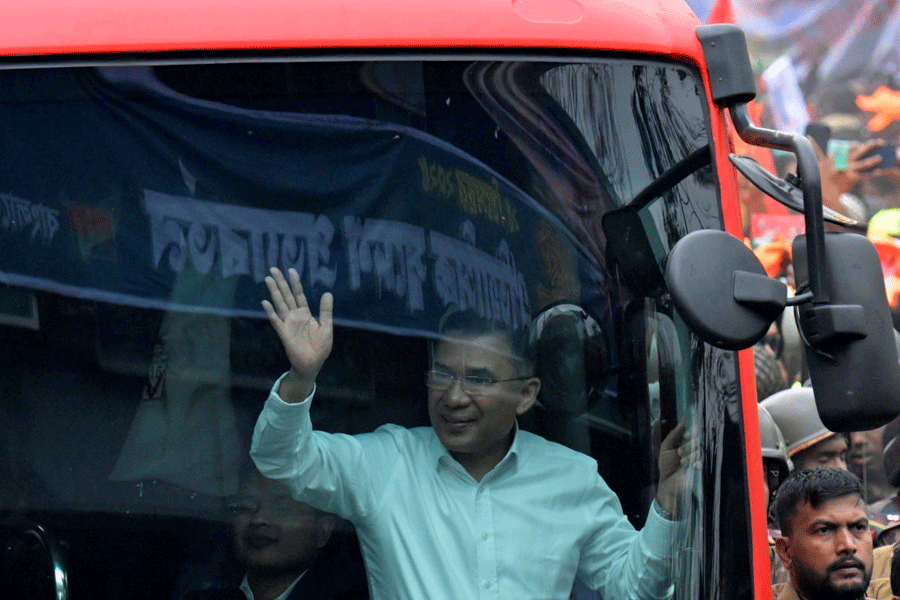Book: THE NEW ICON: SAVARKAR AND THE FACTS
Author: Arun Shourie
Published by: Viking
Price: Rs 999
Does New India allow a critical examination of Vinayak ‘Veer’ Savarkar? Is it possible to chart for that ‘icon’ a hamartographical document, poking holes in his façade of bravado and religious nationalism? Arun Shourie, a former minister in a Bharatiya Janata Party-led government no less, pulls a rabbit out of the hat; not only does he not revere the Hindutva ideologue as a revolutionary freedom fighter but he also questions, at every turn, the gap between what Savarkar preached and what he practised.
Take, for instance, his incredulity at Savarkar’s mental gymnastics surrounding the British government’s refusal to accede to the demands laid out by the Hindu Mahasabha regarding its active participation in the Crown’s war effort in Europe. He observes how Savarkar, in a letter to Lord Linlithgow, tells the Viceroy “not to attach importance” to a series of conditions that the Mahasabha had proclaimed the government must accept before expecting the Hindu community’s wholehearted support. The “give-away sentence”, Shourie remarks, pertained to Savarkar’s reassurance that his conditions existed simply “to checkmate the aggressive demands of the Muslim League”. Also consider Shourie’s utter disdain for New India’s tendency to anoint Savarkar a ‘revolutionary’, considering that he, after writing fire-and-brimstone essays on the necessity of violence to achieve Independence, had concluded that large-scale violence was not possible and that the way forward was the method of assassination, only to be “careful not to undertake any such task oneself”, rather exhorting others to carry out the killings. Shourie illustrates the egregiousness of placing Savarkar on such an exalted pantheon by making a galling comparison with Bhagat Singh, the young Marxist, who, the day before his execution, regretted that he had “not been able to fulfil even one-thousandth part of the aspirations that were in [his] heart” for his beloved country: Savarkar, in contrast, had filed numerous clemency petitions during his stint at Andaman’s Cellular Jail, promising not to incite opposition against the British if he were to be released.
But Shourie’s greatest measure of scorn is directed at Savarkar’s Janus-like attitude towards the Congress in general and the Mahatma in particular. Accused of playing an integral role in M.K. Gandhi’s assassination, Savarkar has no qualms claiming friendship with a man against whom he had employed invective of the lowest order, reveals Shourie. No wonder, then, that today’s bhakts find it fashionable to insult someone who commanded respect even from Subhas Chandra Bose, one of his harshest critics. “Outright Fabrication”, a subheading in a later chapter, sums up Shourie’s feelings regarding Savarkar’s mistranslations of Gandhiji’s writings to show him in a poor light.
There are chapters on Savarkar’s avant-garde rationalism, of course — without them, copies of Shourie’s book would perhaps have been burned en masse outside Hedgewar Bhavan in Nagpur. His gumption in calling out caste as a monster destroying Hindu unity and cow worship as needless lunacy finds mention. But Shourie is unhesitating in asking questions of all that the Hindutva brigade today has accepted as gospel truth: where, for instance, was the fabled Hindu supremacy and unity while Shivaji suffered losses at the hands of the Mughal forces?
Shourie’s book makes for essential reading then even if you read it only once and stumble across the plea he makes in the final page to “save Hinduism from Hindutva”.











